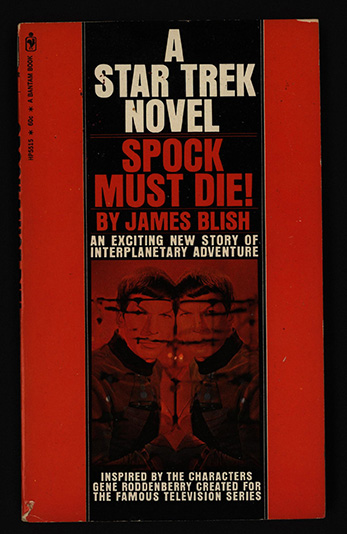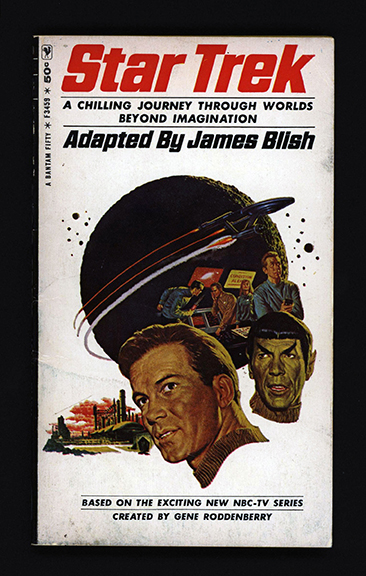Starting in 1967, science fiction writer Jams Blish penned eleven short story collections based on scripts from the original television series. The novel Spock Must Die! is the first in a later series of original “Star Trek novels,” which began in 1970. Bish’s novels went into greater intellectual depth than the television scripts. For example, Spock Must Die! involves the creation of a temporary ,“tachyion copy” of the title character, which can be transported over great distances through space. The novel discusses this doubling in relation to question of the human soul and the philosophical concept of solipsism. Both the short story collections and the original novels were published by Bantam Press.
The original series was remastered and digitally enhanced in 2006, years after the appearance of the spinoff series Star Trek: the Next Generation, Star Trek Voyager and Star Trek Deep Space Nine. The remastered (and digitally enhanced) episodes were aired in syndication and released in DVD and Blu Ray. The boxed set of remastered episodes on display here was released in 2015.
Additional Exhibition items:
Nichelle Nichols. Beyond Uhura: Star Trek and Other Memories. New York: G.P. Putnams’s Sons, 1994.
In her 1994 autobiography actress Nichelle Nichols recounts stories from both before and after her years as Lieutenant Uhura on the Star Trek series. Lieutenant Uhura represented the first principle, female African American television character who was not a servant. In her book Nicholls recalls how she almost resigned from the series after one year, but was dissuaded from doing so by Dr. Martin Luther King, Jr., who convinced her of the social importance of her presence on the show. Dr. King also revealed that he himself was a “Trekker.”
George Takei. To the Stars: The Autobiography of George Takei, Star Trek’s Mr. Sulu. New York: Pocket Books, 1994.
George Takei is still very much in the public eye, partly because of his role as an outspoken LGBT activist. His memoir recounts the years he and his family spent in a Japanese-American internment camp during World War II, as well as his successful campaign to prevent Paramount Studios from replacing the original cast of Star Trek, before the filming of the movie Star Trek VI: the Undiscovered Country in 1991.




